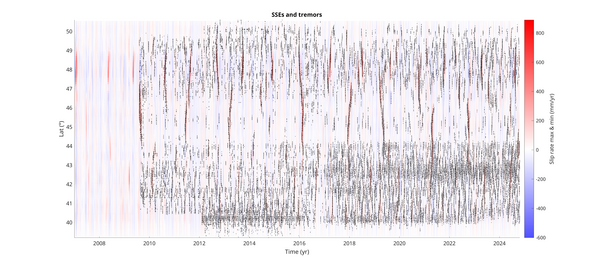Near-real time Cascadia slow earthquake kinematics and dynamics from GNSS position time series
Slow slip events (SSEs) show many similarities with regular earthquakes but are characterised by a much shorter recurrence time (months/years instead of decades/millennia), offering us the possibility to study multiple cycles. The very dense geodetic and seismic networks monitoring the Cascadia subduction region make it an ideal target to study the kinematics and the dynamics of SSEs. I will show an automated pipeline to daily update the slip distribution on the Cascadia subduction zone from GNSS position time series. I use both final and rapid products. At a given date, the last available data refers to two days earlier, meaning that the solutions are up to two days ago. Given the slow nature of SSEs and their long durations (from several days to weeks), this solution paves the way to a prospecting slow earthquake forecasting experiment. I will then introduce local dynamical indices, and how these can be used to estimate the dynamical complexity of SSEs and their predictability. I will finally make a link with observations from the laboratory, indicating possible future avenues to pursue.

